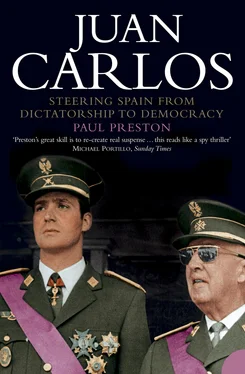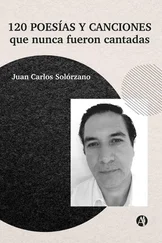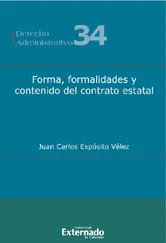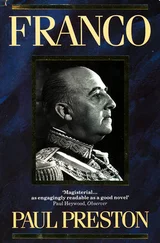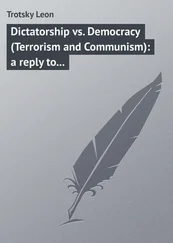General Martínez Campos’s loyalty and deference to the Caudillo prevented him from complaining about the fact that Franco, partly to please the Falange and partly to bring the monarchists to heel, had encouraged criticism of Don Juan in the press. In consequence, as the general knew full well, hostility to the monarchy soon began to be directed against Juan Carlos. At the beginning of February 1955, the Mayor of Madrid wrote to Franco’s cousin, Pacón. In response to the scattering of Falangist leaflets bearing the inscription ‘We want no king!’, the Mayor asked how it was possible, if Franco wanted Juan Carlos educated in Spain, that the regime’s single party should be engaged in insulting the Prince. When Pacón mentioned this to the Caudillo, he brushed it aside as ‘student antics’. However, the rumblings came from much higher in the Falange, including Pilar Primo de Rivera, the head of the Sección Femenina. Nevertheless, Franco brushed aside further reports about anti-monarchist activities from such dignitaries as the Captain-General of Valencia. The mutter-ings continued and, eventually, on 26 February, the Caudillo felt obliged to inform a concerned cabinet that ‘a King would be nominated only if there were a Prince ready for the task’. 74
Juan Carlos’s presence in Spain and its possible implications were highlighted by the publication in ABC on 15 April 1955 of his interview with José Antonio Giménez-Arnau – the first press interview published since his arrival in Spain in 1948. A few days later, violence broke out between Falangists and monarchists at the end of a lecture on European monarchies given by Roberto Cantalupo, once Mussolini’s Ambassador to Franco, at the Madrid Ateneo, the capital’s leading liberal intellectual centre. In response to Cantalupo’s enthusiastic advocacy of monarchy, Rafael Sánchez Mazas, a former minister of Franco, cried ‘ ¡Viva la Falange! ’ in reply to which shouts of ‘ ¡Viva el Rey! ’ or ‘ ¡Viva Don ]uan III! ’ were heard from monarchists present. Falangists then showered the hall with leaflets ridiculing Juan Carlos and the police had to be called to put a stop to the fight that erupted. The Prince also faced the increasingly overt hostility of the then Minister for the Army, General Agustín Muñoz Grandes, whose sympathies lay with the Falange. Later on that spring, young Falangists roamed the streets of Madrid shouting: ‘We don’t want idiot kings!’ Juan Carlos was also booed while he was giving out the prizes at some horse trials, and, in the summer, he was insulted during a visit to a Falangist summer camp. 75
The noises coming from Falangists were the dying agony of a wounded beast. In reality, their organization could not have been more domesticated. On 19 June 1955, the Secretary-General of the Movimiento , Raimundo Fernández Cuesta, declared in a speech made in Bilbao that to ensure the survival of the regime after Franco’s death, judicial, political and institutional guarantees would be necessary. The role of the Movimiento would be to sustain the monarchy that succeeded Franco and to keep it on the straight and narrow path of Francoism. It was the formal recognition by the Falange of the inevitability of a monarchical succession. 76 For their part, the monarchists had to accept that the monarchy would be restored only within the Movimiento. To hammer this home, Franco exploited the anxiety of the sycophantic Julio Danvila, the most Francoist of Don Juan’s advisers, to further the establishment of a Francoist monarchy. At Franco’s behest, the willing Danvila concocted the text of an ‘interview’ with Don Juan in which he apparently gave royal approval to Fernández Cuesta’s speech. Franco agreed the text, which Danvila then took to Estoril where an indignant Don Juan refused to agree to its publication. Danvila then told the Caudillo that the Pretender had accepted the ‘interview’, at which point Franco amended the text to bring it even more into line with his own thinking and obliged ABC and Ya to publish it on 24 June 1955. Although outraged, Don Juan did not protest, since a public break between himself and Franco would have encouraged the anti-monarchical machinations of the extremist elements of the Falange. It might also have led to the termination of Juan Carlos’s education in Spain. 77
Franco was unconcerned about the Falangist rejection of his apparent choice of conservative monarchism as the future of the regime. At the November 1955 rally in El Escorial to commemorate the anniversary of the death of the Falange’s founder, José Antonio Primo de Rivera, Franco rekindled Falangist anxieties about his Las Cabezas meeting with Don Juan and the presence of Juan Carlos in Spain. He had arrived for the ceremony in the uniform of a Captain-General instead of the usual black uniform and blue shirt of the Jefe Nacional (National Chief of the Movimiento ). There was some nervous shuffling in the ranks of the assembled Falangists. As Franco walked across the square towards his car, a voice called out: ‘We want no idiot kings.’ It has also been alleged that a cry of ‘Franco traitor’ was heard. There were other minor incidents reflecting Falangist discontent with the complacency of the regime that Franco dismissed as of little consequence. 78
The constant running down of the Borbón monarchy, together with Franco’s assumption of royal airs, deeply annoyed Don Juan and his family. This was reflected in the indiscreet comments of Alfonso de Borbón, the second son of Don Juan. When he was 14 years old, Alfonsito was wont to refer to Franco as ‘the dwarf or ‘the toad’. He said, ‘That fellow won’t leave. He has to be kicked out … Having to visit him makes me vomit and la Señora , always showing her teeth, kills my appetite.’ It was an indication both of Don Juan’s deteriorating relations with Franco and the fact that Alfonsito was such a favourite that his outbursts were tolerated and praised. Not many years before, Don Juan had smacked his daughter Margarita for repeating a joke about Franco. Things had changed and there can be little doubt that critical remarks about Franco or his wife would quickly have been relayed to El Pardo by the many monarchist visitors who maintained a dual ‘loyalty’. 79
CHAPTER THREE The Tribulations of a Young Soldier 1955–1960
Despite Franco’s readiness to excuse Juan Carlos the entry examinations for the Zaragoza military academy, General Martínez Campos insisted that he undergo the test just like any other prospective cadet. Having passed, Juan Carlos joined the academy in December 1955. As his companions from the academy would later recall, the exams were very difficult and they believed that, although the Prince was usually treated like any other candidate by the examiners, the mathematics test he sat must have been easier than the one they took: indeed, Juan Carlos would soon be shown to be well below average in this subject. 1
Although Juan Carlos, in his public declarations at least, would later recall his years as a cadet with nostalgic fondness, his time at the military academies did not always go smoothly. When he took his oath of loyalty to the colours on 15 December 1955, the ceremony was chaired by the brusque General Agustín Muñoz Grandes, the Minister for the Army, who was much more inclined to the Falangist than to the monarchist cause. Accordingly, in his speech, he made no mention of the Prince. 2 In addition, Juan Carlos was saddened on this occasion by the fact that Franco had not permitted his father to attend the ceremony. 3 On 10 December, Don Juan wrote to him, reminding him of the tremendous responsibilities he would be undertaking when he swore his loyalty to Spain: ‘15 December will be a great day because it is the day on which you will knowingly consecrate the rest of your life to the service of Spain.’ Juan Carlos sent his father a telegram: ‘Before the flag I have promised Spain to be a perfect soldier and with tremendous feeling I swear to you that I will fulfil that oath.’ 4
Читать дальше
